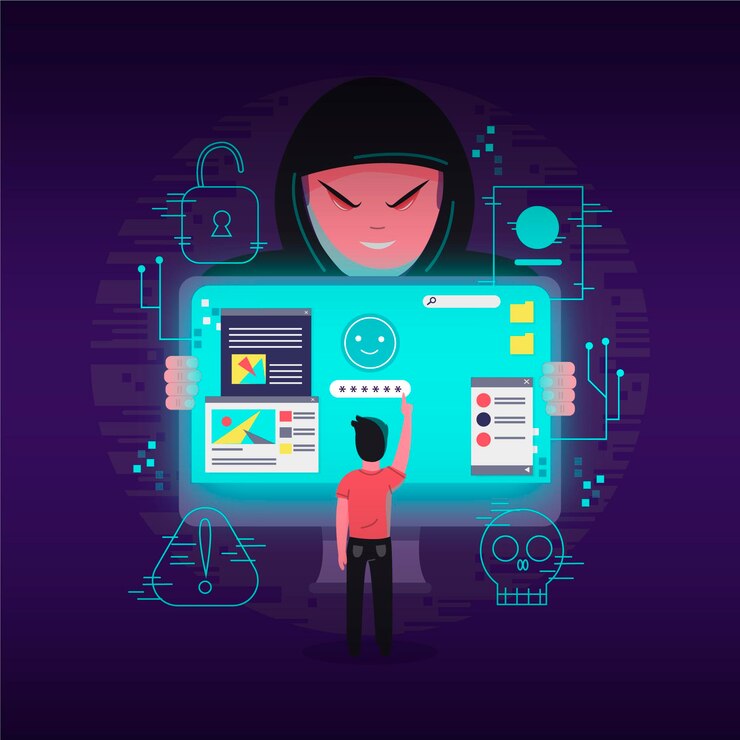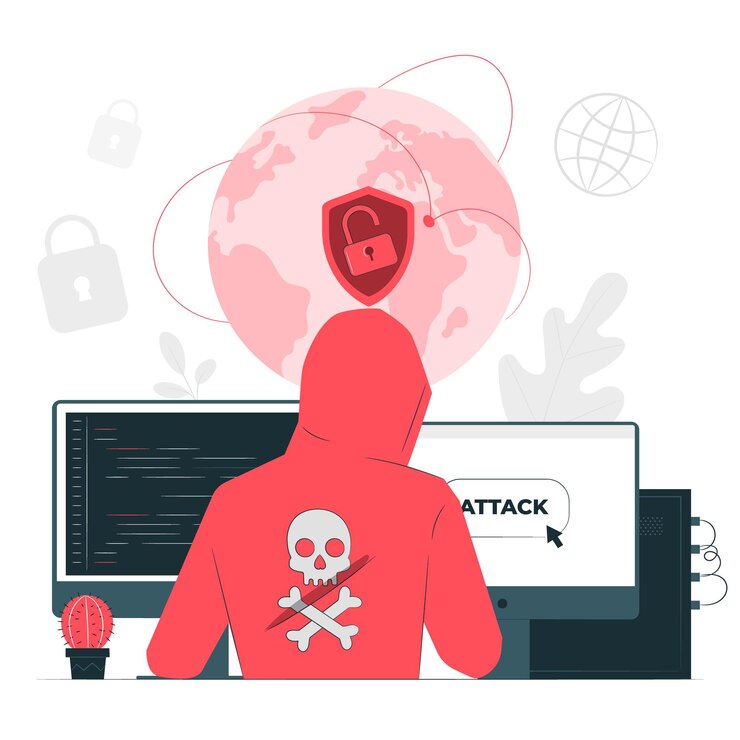Preventing Cyber Attacks
The digital era has brought forth numerous opportunities but also significant challenges, especially concerning cybersecurity. With the constant rise in cyber attacks worldwide, it has become crucial to address the prevention of these incidents from the grassroots level. Education plays a vital role in this scenario, empowering individuals and organizations to understand risks and adopt safe online practices. In this article, we will explore how education can be an effective tool in preventing cyber attacks.
1. Digital Awareness: The First Line of Defense
Education plays a fundamental role in building digital awareness. By understanding the risks associated with the online world, users can take proactive measures to protect their personal and professional information. Educational programs addressing issues such as phishing, malware, and password security are essential to strengthen the first line of defense against cyber attacks.
2. Development of Cybersecurity Skills
Education not only informs but also empowers. Offering training and courses in cybersecurity allows professionals and students to acquire practical skills to identify, prevent, and mitigate cyber threats. These skills are valuable not only for individuals but also for companies seeking to protect their data and systems.
3. Understanding Social Engineering
Cyber attacks often exploit social engineering, manipulating users into disclosing confidential information. Education can play a crucial role in teaching people to recognize social engineering attempts and develop a critical mindset towards suspicious messages. This understanding is a powerful defense against online manipulation schemes.
4. Promotion of a Security Culture
Education is not limited to individual learning; it can shape organizational culture. By promoting a cybersecurity culture, institutions encourage secure practices among their members. This includes implementing security policies, conducting attack simulations, and integrating cybersecurity into everyday operations.
5. Education for Children and Youth
Early engagement in cybersecurity education is crucial. Including topics related to online safety in the school curriculum prepares younger generations to face digital challenges. This not only protects students but also contributes to the formation of responsible and aware digital citizens.

6. Continuous Update in an Evolving World
Technology and cybercriminal tactics are constantly evolving. Therefore, cybersecurity education is not a one-time event but an ongoing process. Continuous awareness and update programs ensure that professionals and users stay informed about the latest threats and defense strategies.
7. Collaboration between Public and Private Sectors
Cybersecurity education also involves collaboration between public and private sectors. Joint initiatives between governments, businesses, and educational institutions can create a robust ecosystem for preventing cyber attacks. This collaboration may include creating guidelines, sharing information, and supporting innovative research in the field.
8. Awareness of Digital Ethics
Beyond technical security, cybersecurity education should address digital ethics. This includes understanding the ethical consequences of technology use, respecting online privacy, and promoting responsible behaviors in the digital age. Awareness of digital ethics contributes to a safer and more respectful online environment.
9. Cybersecurity Education for Small Businesses
Small businesses are frequently targeted by cybercriminals due to perceived weaknesses. Providing tailored cybersecurity education for small businesses is essential. This education can cover topics such as secure financial transactions, data protection, and the importance of regular software updates. Empowering small business owners and employees with this knowledge enhances their ability to safeguard sensitive information.
10. Public Awareness Campaigns
Education in cybersecurity should extend beyond formal settings. Public awareness campaigns play a crucial role in reaching a broader audience. These campaigns can focus on common cyber threats, best practices for online safety, and the potential consequences of cyber attacks. By reaching the general public, these campaigns contribute to creating a more cyber-resilient society.

11. Incentives for Cybersecurity Education
Governments and organizations can implement incentives to encourage cybersecurity education. This can include tax incentives for businesses investing in employee training, recognition programs for institutions promoting cybersecurity awareness, or even scholarships for individuals pursuing studies in cybersecurity. Incentives can serve as powerful motivators to prioritize education in this field.
12. Global Collaboration and Standardization
Cyber threats transcend national borders, emphasizing the need for global collaboration. Establishing international standards for cybersecurity education can ensure a unified and comprehensive approach. Collaboration between countries, sharing best practices, and developing a global framework for cybersecurity education can create a more coordinated defense against cyber threats.
13. Integration into Formal Education
Integrating cybersecurity education into formal education systems at various levels is crucial. Schools, colleges, and universities can incorporate cybersecurity modules into their curricula, ensuring that students from diverse disciplines gain foundational knowledge in cybersecurity. This integration prepares future professionals to navigate the digital landscape securely.
14. Bridging the Gender Gap in Cybersecurity
A noticeable gender disparity exists in the cybersecurity field. Encouraging more women to pursue careers in cybersecurity starts with education. Educational programs and initiatives should aim to eliminate gender stereotypes, provide mentorship opportunities, and create a welcoming environment for women interested in the field. A diverse workforce enhances the overall effectiveness of cybersecurity efforts.
15. Encouraging Responsible Technology Use
Cybersecurity education goes beyond technical aspects; it also emphasizes responsible technology use. This includes promoting ethical behavior in online spaces, discouraging cyberbullying, and educating users about the impact of their digital footprint. Fostering a sense of responsibility in technology usage contributes to a safer and more respectful online community.
Empowering Through Education
In conclusion, education stands as a powerful weapon in the prevention of cyber attacks. By fostering awareness, imparting practical skills, and promoting a culture of cybersecurity, education empowers individuals and organizations to navigate the digital landscape securely. As technology continues to advance, an ongoing commitment to cybersecurity education becomes paramount in creating a resilient and knowledgeable society capable of defending against cyber threats.
Did you like this topic? See more content about: Cybersecurity
SOURCE: terranova security





